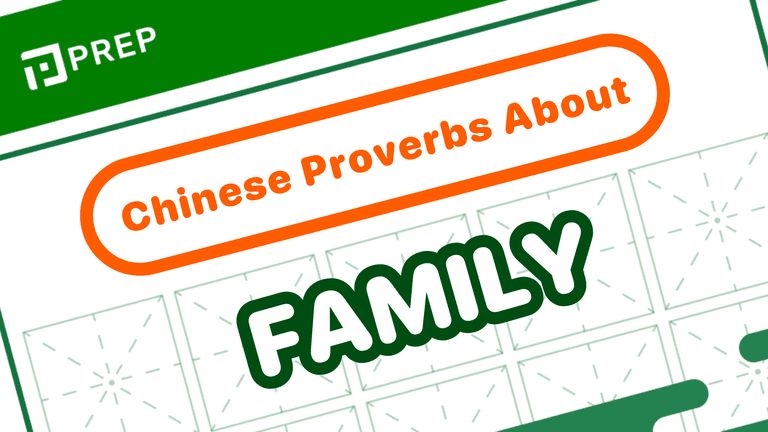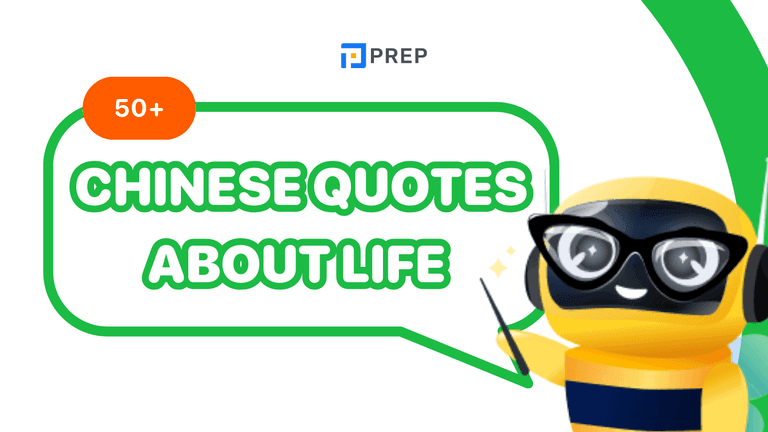Yet in English: A Complete Guide to Rules & Usage
The word yet in English is the most deceptive challenge—simple in appearance but complex in application. While native speakers use it effortlessly, non-native speakers often find themselves caught between its temporal nuances and contrasting functions, creating awkward sentences that immediately reveal their linguistic uncertainty. This definitive guide dissects every aspect of "yet," from its fundamental rules to its sophisticated applications, ensuring you develop the precision and confidence that distinguishes fluent speakers from hesitant communicators.
- I. What is Yet in English? A Foundational Overview
- II. A Comprehensive Summary of How to Use Yet in English
- III. Common Traps: Mistakes to Avoid When Using "Yet"
- IV. Words and phrases associated with Yet in English
- V. The Critical Distinction: How to Use "Yet," "Still," "Just," and "Already" Correctly
- VI. Frequent Asked Questions about Yet in English
- VII. Conclusion

I. What is Yet in English? A Foundational Overview
Yet in English is a versatile word that primarily functions as an adverb to discuss an expected event that has not happened, or as a conjunction to introduce a contrasting idea, similar to "but." The word carries the weight of expectation and timing, making it indispensable for expressing incomplete actions and surprising contrasts. Understanding yet meaning in English becomes challenging because it shares semantic territory with words like "still," "already," and "just," creating confusion for learners who struggle to distinguish between these temporal markers.
II. A Comprehensive Summary of How to Use Yet in English
1. As an Adverb: Talking About Expected Time
The most fundamental use of yet in English revolves around expectation—the speaker believes something should have happened by now but acknowledges it remains incomplete. This usage creates a bridge between anticipated outcomes and current reality, expressing a sense of temporal suspension where events hang in the balance.
Essential Rules for Temporal yet in English:
When using yet in a sentence as a temporal adverb, three fundamental principles govern proper application. These rules form the foundation for accurate usage and prevent the common mistakes that characterize intermediate speakers.
-
Present Perfect Tense Partnership: Pair yet in English primarily with the Present Perfect Tense, creating structures like "have not done" or "has not arrived" that emphasize the connection between past actions and present relevance.
-
Negative and Question Restriction: Reserve "yet" for negative sentences and questions, avoiding its use in positive statements where "already" would be appropriate.
-
Terminal Position Requirement: Position yet in English almost invariably at the sentence's end, where it receives natural emphasis and maintains the flow of English rhythm.
Practical Examples in Context:
Consider this fundamental pattern: "I haven't eaten lunch yet" demonstrates the classic negative construction where the speaker expected to eat by now but acknowledges the meal remains pending. The Present Perfect "haven't eaten" combines with terminal "yet" to create expectation about an overdue action.
Similarly, the question’s form "Have you finished your homework yet?" shows how "yet" seeks confirmation about anticipated completion. The speaker assumes homework should be done by this time but requires status verification.
2. As a Conjunction: Creating Contrast Like "But"
When yet in English functions as a conjunction, it connects two independent clauses while introducing an element of surprise, contradiction, or irony that goes beyond simple opposition. This sophisticated usage adds nuance to your expression, suggesting that the contrast carries unexpected weight or defies logical expectations.
Structural Requirements:
The conjunction yet in English typically requires a comma before it when joining two independent clauses, following standard punctuation rules for coordinating conjunctions. This punctuation creates emphasis on the contrasting relationship between the clauses, drawing attention to the unexpected nature of their coexistence.
Illustrative Examples:
"He studied hard, yet he failed the exam" presents a surprising outcome that contradicts expected results. The conjunction emphasizes the shock of failure despite adequate preparation.
"The car is old, yet it's incredibly reliable" demonstrates how yet in English highlights unexpected quality that defies assumptions about age and performance. The contrast becomes more dramatic than simple "but" would provide.
3. For Emphasis: Adding Strength to a Statement
Advanced speakers employ "yet" to intensify adjectives and create emphasis in formal or literary contexts. This usage transforms ordinary descriptions into more compelling statements by suggesting progression or escalation beyond previous levels.
Common Emphatic Patterns:
-
Yet another delay → suggests frustration with repeated occurrences
-
A yet more complicated problem → indicates increasing complexity
-
Yet higher standards → emphasizes continuous elevation
These constructions demonstrate sophisticated command of English nuance and appear frequently in academic and professional writing. The emphatic yet in English signals that something exceeds previous levels or expectations, creating stronger impact than basic adjectives alone.
4. The Formal Phrase: "As Yet"
The phrase "as yet" serves as a formal alternative to simple yet in English, meaning "up to this present time" or "so far." This construction appears primarily in professional, academic, or official contexts where elevated register enhances credibility and precision.
Usage Example: "As yet, we have received no information" conveys the same temporal meaning as "We haven't received any information yet" while maintaining formal tone appropriate for business correspondence or official reports.
5. The Advanced Structures: Distinguishing Between "Have yet to" and "Be yet to"
Two sophisticated constructions showcase advanced English proficiency while carrying distinct semantic weights that separate confident speakers from intermediate learners.
|
Structure |
Function |
Implication |
Example |
|
Have yet to + verb |
Emphasizes unperformed required action |
Often carries obligation or criticism |
"The CEO has yet to make a statement" |
|
Be yet to + verb |
Focuses on future expectations |
Maintains optimistic anticipation |
"The best part of the show is yet to come" |
The pattern "have yet to + verb" emphasizes that a required or expected action remains unperformed, often carrying implications of obligation or necessity. This structure suggests both expectation and potential criticism about delays.
Conversely, "be yet to + verb" focuses on future expectations while acknowledging current incompleteness. This construction creates anticipation for future events while maintaining an optimistic tone about upcoming developments.
III. Common Traps: Mistakes to Avoid When Using "Yet"
Understanding where yet in English fails helps solidify correct usage patterns and prevents embarrassing errors that mark non-native speakers. These common mistakes reveal fundamental misunderstandings about temporal relationships and sentence construction in English.
-
Trap 1: Using "Yet" in Positive Statements Incorrect applications like "I have finished my homework yet" violate the core principle that "yet" belongs in negative constructions and questions. The correct positive equivalent would be "I have already finished my homework," where "already" signals completed action rather than pending expectation.
-
Trap 2: Incorrect Sentence Position Misplaced "yet" creates awkward constructions such as "She has yet not called me," which scrambles the natural word order and confuses meaning. The proper arrangement "She has not called me yet" maintains clarity while preserving emphasis on the temporal element.
-
Trap 3: Confusing "Yet" with "Still" for Ongoing Actions Questions like "Is it yet raining?" demonstrate confusion between temporal markers, where "yet" inappropriately attempts to describe continuing action. The correct form is "Is it still raining?" uses "still" to indicate ongoing states rather than unfulfilled expectations.
IV. Words and phrases associated with Yet in English
|
Words/phrases |
Meaning |
Example |
|
The best, worst,... yet |
The best, worst, etc. until now |
Of all the songs I've heard in Taylor's album, “Speak now” is the best yet. |
|
As yet |
Until and including this time |
Our team hasn't needed extra staff as yet, but we may in the future. |
|
Have yet to |
If you have yet to do something, you have not done it |
We have yet to make a decision. |
|
Might yet |
The possibility of events occurring at the present moment of speaking |
Alex might yet prove me wrong. |
|
May yet |
Robert hasn't won the competition yet. |
|
|
Yet another |
Emphasizing and showing an increase in amount or the number of times something happens |
Peter bought yet another pair of glasses to add to his collection. |
|
Yet again |
I'm sorry to bother you yet again. |
|
|
Yet more |
The leader has given us yet more work to d |
V. The Critical Distinction: How to Use "Yet," "Still," "Just," and "Already" Correctly
These four temporal adverbs create the most confusion for English learners, yet mastering their differences unlocks fluent expression and prevents the awkward mistakes that immediately identify non-native speakers. Each word occupies a specific semantic space that cannot be interchanged without altering meaning and destroying natural rhythm.
|
Word |
Main Idea/Function |
Sentence Type |
Example Sentence |
|
Yet |
Expected action not completed |
Negative sentences and questions |
"I haven't called her yet." |
|
Still |
Ongoing action or unchanged state |
Positive, negative, and questions |
"She's still working on the project." |
|
Just |
Recently completed action |
Positive statements |
"I just finished my dinner." |
|
Already |
Completed action, earlier than expected |
Positive statements and questions |
"He has already left for work." |
The distinction between yet and already becomes particularly crucial because they occupy opposite semantic territories—yet in English signals unfulfilled expectations in negative contexts, while "already" celebrates completed actions that may have occurred sooner than anticipated. When someone asks "Have you finished yet?" they expect a timeline update, but "Have you finished already?" expresses surprise at the speed of completion.
Similarly, understanding when to use "still" versus "yet" prevents common errors like confusing ongoing states with pending actions. "Still" maintains continuity ("The meeting is still in progress"), while "yet" addresses completion status ("The meeting hasn't ended yet").
VI. Frequent Asked Questions about Yet in English
-
How to use yet in English?
Use "yet" primarily in negative sentences and questions with Present Perfect tense to indicate expected actions that remain incomplete. Place "yet" at the sentence end for proper emphasis and natural flow. For example, "I haven't received the package yet" shows unfulfilled expectation, while "Have you met the new manager yet?" seeks status updates on anticipated events.
-
When to use but or yet?
Choose "but" for simple contrasts between facts, while "yet" adds surprise or irony to contradictions. "But" creates straightforward opposition ("She's young but wise"), whereas "yet" emphasizes unexpected relationships ("She's only sixteen, yet she speaks five languages fluently"). Use "yet" when the contrast defies logical expectations or creates dramatic effect.
-
Where will we use yet?
Position yet in English at sentence endings in negative statements and questions about incomplete actions. Use it in formal writing with "as yet" constructions, in emphatic phrases like "yet another problem," and as a conjunction to connect contrasting clauses. Avoid "yet" in positive statements where "already" or "just" would be appropriate.
-
When to use already or yet?
Select "already" for completed actions in positive statements and surprised questions ("She has already finished" or "Are you leaving already?"). Choose "yet" for incomplete actions in negative sentences and status-checking questions ("She hasn't finished yet" or "Are you ready yet?"). The key difference lies in completion status and sentence polarity.
VII. Conclusion
Mastering yet in English requires understanding its multiple functions as both temporal adverb and contrasting conjunction, while avoiding common placement errors and distinguishing it from similar words like "still," "just," and "already." Practice these patterns consistently, focusing on negative constructions for temporal usage and comma placement for conjunctive applications. With dedicated attention to these distinctions, you'll transform your English expression from hesitant to confident, joining the ranks of speakers who wield this versatile word with precision and natural fluency.

Hi I'm Chloe, and I am currently serving as an Product Content Administrator at Prep Education. With over five years of experience in independent online IELTS study and exam preparation, I am confident in my ability to support learners in achieving their highest possible scores.
Comment
Premium content
View allPersonalized roadmap
Most read












